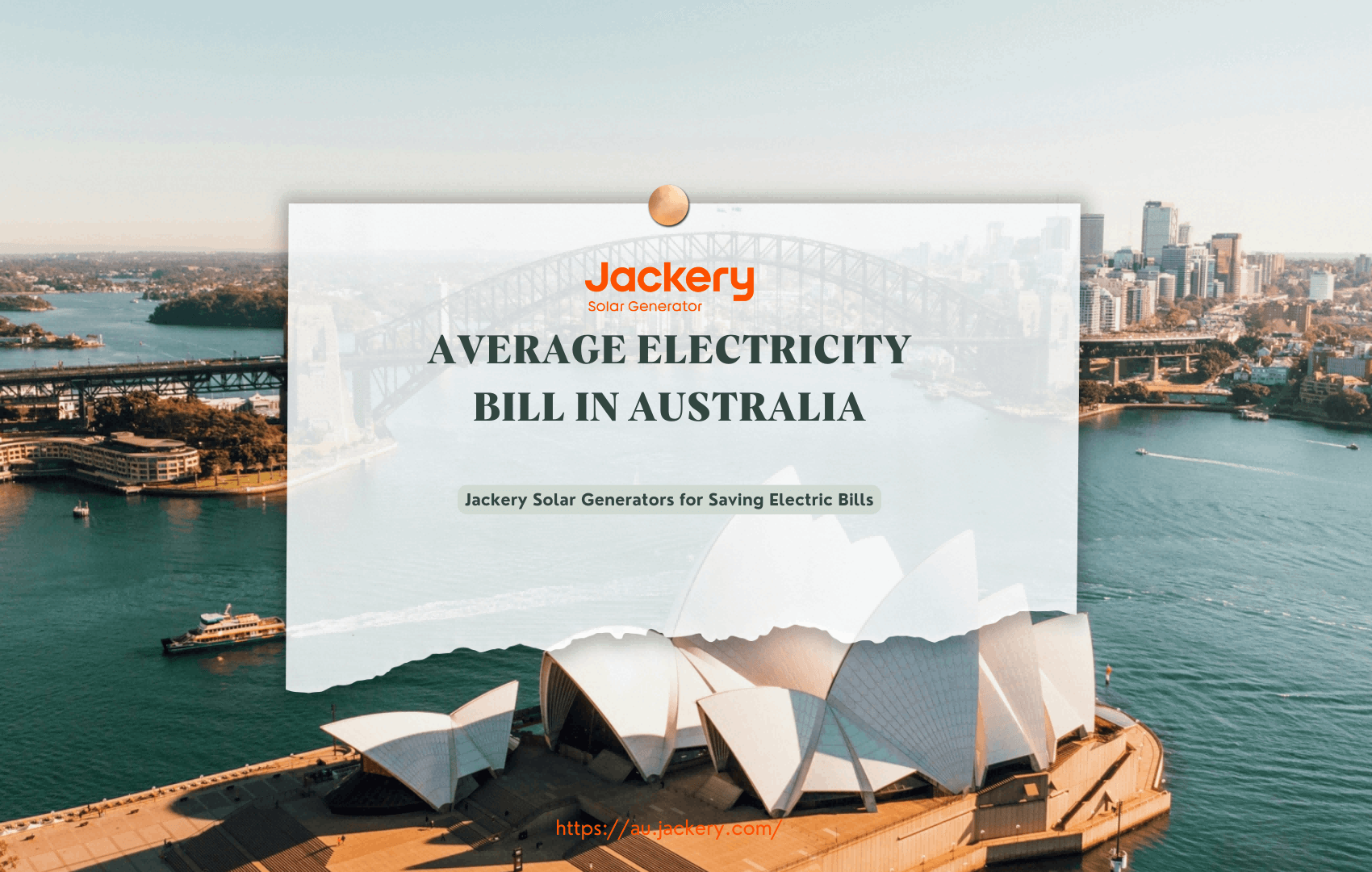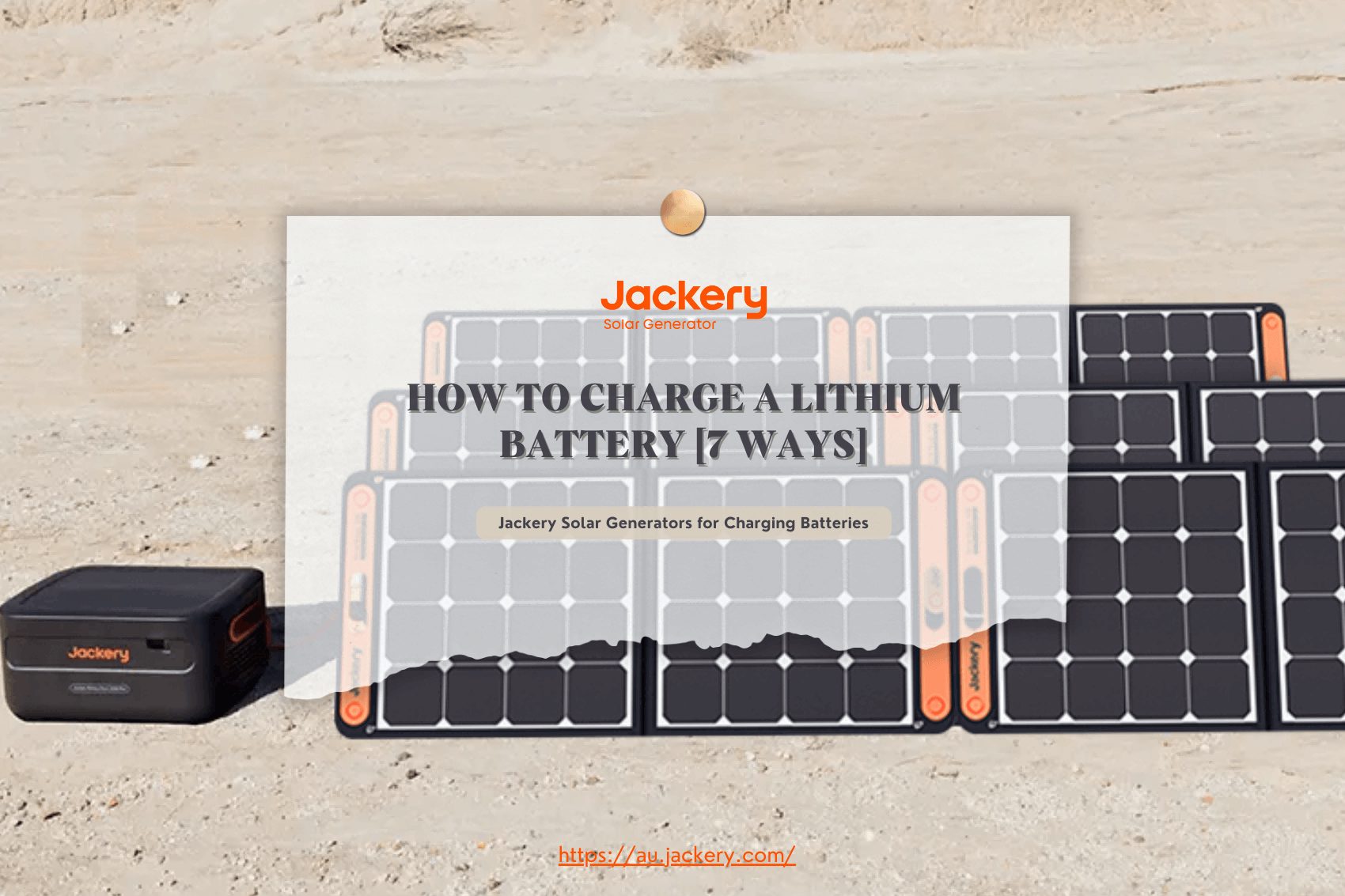|
Key Takeaways: |
|
• Queensland residents can expect to pay around $1,230 per year for electricity, with some plans offering savings of up to 18% on the standard rate. • Most single-person families make around $75 a month. Most homes for two people cost about $102 a month. Bills for larger, four-person homes might be around $136 per month. • In particular, people in their 30s tend to have higher annual costs of about $2,029.68, while people aged 70 and up tend to have lower annual fees of about $1,315.00. • Utilising renewable energy sources such as solar power like the Jackery Solar Generator 1000 Plus and 2000 Plus can significantly reduce the electric bill. |
What Is The Average Electric Bill in Melbourne?
The average yearly cost of electricity in Melbourne is about $1,290, much less than the national average.
These numbers are just suggestions; the exact amount of electricity a family needs depends on many things, such as its size, how it uses energy, and which electricity provider it chooses.
Electricity prices can change because of things like the opening of the market and changes in government policies. Many stay with bigger, better-known providers because they trust them and find them easier to work with.
However, this can mean missing out on cheaper market rates offered by smaller, less-known names. There is a lot of value in checking your bill and seeing what you are getting for your money. People who regularly compare and review their energy plans can find better financial deals.
Managing your energy bill is a proactive way to keep your family costs in check. This is especially important if you use electricity for hot water, as this can make up a big part of your bill. People in Melbourne are encouraged to regularly look at how much energy they use, consider how energy-efficient their home appliances are, and compare rates from different energy sellers.
|
State |
Average Electric Bill (Quarterly) |
|
Western Australia |
$296 |
|
Victoria |
$320 |
|
Queensland |
$315 |
|
New South Wales |
$345 |
|
South Australia |
$352 |
|
Tasmania |
$372 |
|
Australian Capital Territory |
$321 |
|
Australia Average |
$331 |
The typical power costs shown below were obtained from a December 2023 survey of over 4,100 homes by Canstar Blue. Households of all sizes are included in the expenses shown, which should only be used as a general reference.
It was discovered that the typical Melbourne household's quarterly power expenditure was $313. It's time to compare and see if you can save more money on your power bill. Keep reading to learn more about Melbourne electric plans.
How to Read Electric Bills in Melbourne?
Reading your power meter in Australia is easier than you would think! Find your meter box and record the numbers from left to right, using the lowest number if a dial falls between two if it has clock-face dials.
Remember that "leading zeros" are essential! Press the corresponding buttons to navigate through readings to record each "electricity metre number" shown on a digital display.
Knowing your meter allows you to monitor consumption and reduce expenses, so take out your notebook and try it! The kinds of electricity meters are as follows:
Smart meters for electricity. Digital meters that track power use in real-time are called smart meters. Electricity retailers and distributors receive this data, which they may use to provide consumers with more precise bills and information about how much energy they use.

Remotely Read Smart Meters
As the consumption data from smart metres scanned remotely is instantly transmitted to the metre service provider, it is frequently unnecessary for them to visit your home.
If your smart meter is remotely read, you may use My Account applications to see your consumption on an hourly, daily, weekly, monthly, and, in some situations, yearly basis if there is sufficient usage data. Viewing of all use data is possible within 72 hours after consumption.
Manually Read Interval Meters
The distributor or service provider must physically download the data from your meter since these meters cannot be read remotely.
These meters cannot be remotely read, but you may still use My Account to check your consumption hourly, daily, weekly, monthly, and, when available, yearly. All use data is updated and accessible for viewing 72 hours after the meter reading by your distributor or meter provider.
What Are The Electric Plans in Melbourne?
With our network of endorsed suppliers, CheapBills can help you compare power costs and locate some of Victoria's most affordable energy packages. Carefully compare gas and electricity contracts every 12 months since Victoria's energy rates are subject to change, and providers often offer discounts and special offers.
We will contrast the energy packages offered by a few of Melbourne's leading electrical suppliers, such as:
- EnergyAustralia
- Covau
- Tango Energy
- Blue NRG
- Energy Locals
In Melbourne, one may compare energy prices from several suppliers, such as Origin Energy, AGL, Dodo, Alinta Energy, Simply Energy, Lumo Energy, Momentum Energy, 1st Energy, and Red Energy. You may review the details on their website for the most current offers and costs to compare Energy Victoria from various suppliers.
Factors Affect The Average Electric Bill in Melbourne
The average Melbourne electric bill is a rough guess of how much people in Australia pay for electricity. It could change. The most important thing to know about energy bills is how much electricity each home uses. The size of the house and how inefficiently appliances are used are just a few things that can change the energy bills.

Factor 1: Household Size
Different parts of Melbourne use different amounts of electricity depending on the weather, whether people live in houses or apartments, the size of their homes, the number of people living there, and how energy-efficient they are.
Generally, residential areas with bigger homes and electrical appliances use more energy. However, estates with newer homes will be much more energy efficient than older homes, even if they have more room.
To better understand how much things cost, the average monthly energy bill for a home in Victoria from late 2022 to late 2023 will be around $84. This will depend on the size of the house. Here's how it works:
- Most single-person families make around $75a month.
- Most homes for two people cost about $102a month.
- Bills for larger, four-person homes might be around $136per month.
The types of homes and the people who live in them can also change how much electricity people use. Because of their size and shared infrastructure, apartments usually use less energy than homes.
|
Household Size (number of people) |
Average Electricity Bill Per Month |
|
1 |
$75 |
|
2 |
$102 |
|
4 or more |
$136 |
(Data Source: EnergySe)
Factor 2: Using Patterns
Some interesting trends that power users in Melbourne have seen are
- ACs are used the most in the summer.
- In the winter, people use more energy to heat.
This lowers the demand for energy during other times of the year and helps keep Melbourne's electricity use lower than in some alpine places, like Tasmania, where large amounts of electricity are needed yearly to keep up with the cold.
Some patterns show up when you look at average electricity prices and age. In particular, people in their 30s tend to have higher annual costs of about $2,029.68, while people aged 70 and up tend to have lower annual fees of about $1,315.00.
Factor 3: Energy Suppliers
The supplier and strategy for power suppliers, also called sellers of power, choose their rates for both plans and electricity. Some provide more significant discounts or lower rates than others for the same electrical source, which may affect the yearly cost. Remember that suppliers may charge different amounts for daily supplies and power use.
|
Suppliers |
Average Electric Bill (Yearly) |
Referenced Deal |
|
Powershop Australia |
$1,201 |
24% Less Than VDO |
|
GloBird Energy |
$1,169 |
26% Less Than VDO |
|
OVO Energy |
$1,185 |
25% Less Than VDO |
|
Origin |
$1,226 |
22% Less Than VDO |
|
Alinta Energy |
$1,225 |
22% Less Than VDO |
|
AGL |
$1,241 |
21% Less Than VDO |
|
Energy Locals |
$1,239 |
12% Less Than VDO |
(Data Source: Canstar Blue)
Your bills are primarily based on how much electricity you use, recorded in kilowatt-hours (kWh). They will take the amount of energy your home uses and multiply it by a specific rate.
In addition to prices being different between companies, the energy rate changes all year because of changes in the seasons that make more people want to use it. Power prices may increase during extreme heat or cold and in the evening when more people are home and solar energy is unavailable. It depends on how your home is set up.
Besides the kWh you used, your bill will also have daily service fees. Again, these will be different for each service.
The Victorian Default Offer is a pricing mechanism established by the Victorian government to address Citipower's monopoly in the Melbourne market. It ensures a fair price for consumers. Once the CDO rate is set, providers can make their prices go up or down by a certain amount.
The table shows how prices can change from one provider to another. These are based on how homes use electricity, which is 4,000 kWh annually. Based on the single rate price and the daily supply charge, the Victorian Default Offer is thought to be $1,571 per year.
Factor 4: Household Appliances
A lot of electricity is used by appliances, especially for heating and cooling, which can make up a big part of most people's electricity costs, especially when the weather is terrible. Another thing that uses a lot of energy is a refrigerator, which constantly needs power.
Getting appliances that use less energy is a big part of saving money on your power bill. For heating, cooling, refrigeration, washers, dryers, and everyday cooking appliances, newer, more energy-efficient types can use much less electricity than older ones.
How Do I Lower My Electric Bill in Melbourne?
Are your electricity bills going up? We can't say for sure that power doesn't make running our homes much easier than it was 100 years ago. For this reason, people need to cut down on their power use even more, which will lower their energy bills. In Melbourne, the following tips will help you significantly reduce your power use.

Tip 1: Choose Energy-Efficient Bulbs
This is because old halogen bulbs and incandescent tubes use more electricity than newer ones. Ensuring your home's lights use energy-saving bulbs will lower your electricity price. These lights last a long time and save you a lot of money.
It would be best to buy LED lights, which use less energy, or smart bulbs, which dim automatically and help you save up to 75% of energy. Many light bulbs and switches that use less electricity can be used creatively to make the room look better and save electricity simultaneously.
Tip 2: Adjust The Thermostat
When you look at your electricity bills, cooling and heating your house can be costly. It would be best if you were more intelligent than that. Save money on heating costs by keeping the temperature below 20 degrees. You can set the temperature to about 25 degrees to cool down in the summer. If it's below 26 degrees, the cost of running the car can go up by almost 10%.
According to a study, electric hot water uses a third of all year's power. Are you looking for ways to use less electric hot water? If you need to change the settings on your thermostat, call a professional plumber.
Tip 3: Set Appliances in Standby Mode
Over the year, standby appliances can waste more energy, costing you more. A lot of electricity is used by appliances like TVs, phone chargers, dryers, and more when they're not in use. To avoid this, turn them off at the wall or buy a smart power board to help you turn off idle electricity.
Tip 4: Maintain Appliances Regularly
Regular maintenance will help keep your home's systems and equipment in good working order, avoiding overconsumption and unexpected repair costs. For example, regularly changing the air filters in your heating and air conditioning systems can improve efficiency and help you avoid energy use and energy bills.
Tip 5: Compare The Electricity Providers
You can look at deals from different power companies to see the best. Knowing the latest electricity prices is essential because energy companies often change their goods and prices. They can help you save money on your power bills if you find companies that offer good deals.
Tip 6: Start An Energy Assessment
Your power bills can decrease if you learn about and change how much energy your home needs. You can reach this goal by figuring out what parts of your home cause your energy bills to be so high and making small changes that work for you.
Find an electrician in your area to come to your house and keep an eye on the places where you use the most electricity. Then you can decide whether to use less electricity or get a new one to lower your bills.
Tip 7: Change Personal Habits
Think about any habits or preferences that might affect how much energy your home uses - plan for these personal things to help you save money on your energy bills. You can make it a habit at home to turn off the lights when no one is in the room. In the long run, something this easy can make a huge difference.
Tip 8: Turn to Solar Energy
Reducing your electricity price can be very easy if you use solar power. Buying energy from stores will be less necessary if you can make enough solar energy.
You could meet your lighting and heating needs by setting solar panels on the roof of your home or office. This will cost you a lot upfront but save you a lot of money in the long run. However, if you think installing a solar panel system is costly, you may consider investing in a solar generator to use renewable energy at a reasonable price.
Solar generators, like Jackery Solar Generator, can be an environmentally friendly energy source to reduce energy consumption and lower household electricity bills. Solar investments in electricity can benefit from various incentives, rebates, and feed-in tariffs, increasing home value while saving energy.
In addition, Melbourne's sunny climate is ideal for solar generating electricity, reducing grid dependency and saving money on electricity bills. The initial costs of installing a solar or electric power system are high, but the ongoing savings can be thousands of dollars.
Jackery Solar Generators for Reducing Electric Bills
Implementing a solar energy system in your residence provides numerous advantages. Jackery is a renowned manufacturer in the solar industry, focusing on producing top-notch solar equipment like solar generators, solar panels, and portable power stations.
Jackery Solar Generators offer a reliable and uninterrupted power supply for your household appliances to reduce your electric bills in Melbourne.

In conjunction with Jackery Solar Panels, a Portable Power Station facilitates the efficient conversion and storage of more sunlight for future use. By having numerous output ports, you can charge multiple appliances at the same time.
Additionally, a Portable Power Station offers several options for recharging, such as Jackery Solar Panels, carports, wall outlets, or other electric generators.
Jackery Solar Generator 2000 Plus
Jackery has unveiled the Solar Generator 2000 Plus, a cutting-edge portable power solution with exceptional performance. Thanks to its substantial capacity and formidable power output, this device can sustain the operation of standard domestic appliances for several weeks and fulfil all the power needs associated with outdoor adventure or professional activity.
The Jackery Solar Generator 2000 Plus allows adding extra battery packs, which boosts the capacity from 2 kWh to a remarkable 12 kWh, thus enhancing the solar charging capabilities significantly. With the ability to be expanded to 3000W, this solar product offers a 30% higher rated power than other 2 kWh solar products available in the market.
The Explorer 2000 Plus is an industry's pioneering add-on battery pack that can be recharged using solar panels. This feature enhances versatility, improves charging efficiency, and reduces charging time. The LiFePO4 battery, with its sophisticated technology, guarantees a lifespan of 10 years, even with daily usage limited to once per day. Jackery Solar Panels generate more energy over their lifespan due to their exceptional solar conversion efficiency, reaching up to 25%.

Jackery Solar Generator 1000 Plus
The Jackery Solar Generator 1000 Plus is the best portable power supply due to its exceptional output. It can aid in camping, off-road driving, home emergencies, and other circumstances. It is the all-in-one solar generator for your life due to its versatility and size.
Supports up to three additional battery packs, bringing the total capacity to 5kWh and providing 1-3 days of home backup power. A solar generator can power your refrigerators, TVs, phones, and more devices at home, bringing both comfort and convenience. Stay connected and keep critical devices running with reliable backup power, assuring safety and convenience in an emergency.
The Jackery Explorer 1000 Plus portable power station, with a 10-year lifespan and a Lithium Iron Phosphate (LiFePO4) battery, provides a consistent voltage and pure sine wave to ensure the safety of all your electrical gadgets. Additionally, the innovative ChargeShield technology and consistent power delivery avoid equipment damage.

How Much Does It Cost to Live in Melbourne?
Melbourne is regarded as one of the best cities in the world, and Australia is the best. This vibrant city, situated on the banks of the magnificent Yarra River, has a rich cultural heritage and breathtaking scenery.
Australia's cost of living is an important consideration when relocating there. Moving to Melbourne has a direct influence on your style of life and money management. This information on Melbourne's average cost of living can help you budget appropriately whether you're moving to the city with your family, studying abroad, or looking for a career.
According to PropTrack's Market Insight report from January 2023, the average weekly rent for homes in Melbourne increased by 2.3% to $450. (a 9.8% rise overall from the beginning of 2022). According to a recent PropTrack report, Melbourne's median home rent jumped to $480 weekly.
|
Types of Costs |
Avg. Cost per Month for Single |
Avg. Cost per Month for Family |
Avg. Cost per Month for Student |
|
Housing & Rent |
$1330 |
$2100 |
$800-1200 |
|
Food |
$560 |
$1450 |
$500-600 |
|
Utility (electricity, water, gas, etc.) |
$120 |
$180 |
$220 |
|
Transportation |
$310 |
$800 |
$160 |
|
Entertainment |
$80-140 |
$120-480 |
$80-140 |
(Data Source: Living Cost Org)
- For a single individual, the cost of living in Melbourne is around $2,367per month and $28,404 per year.
- Living expenses for a family of four in Melbourne are around $5,511per month and $66,132 per year.
- Students in Melbourne pay around $1,500per month and $18,000 per year for living expenses.
Average Electric Bill in Melbourne FAQs
The following are the frequently asked questions about the average electric bill in Melbourne.
- What is the average electricity bill in Melbourne?
Melbourne's average annual power costs for 2023 were much lower than the national average, at around $1,290. Melbourne's well-established gas stovetop and home heating connection network, which offers homeowners a choice of energy source, is mainly responsible for this.
- Why is my electricity bill so high in Australia?
When you heat and cool your home in the winter and summer, respectively, you consume more energy. To track when your consumption is usually greater, compare your invoices from last year.
- How do you calculate electric bills?
Calculate the kilowatts by the average hours the appliance uses each week. To determine how many kWh your appliance consumes monthly, multiply that figure by 30. To estimate the amount of your monthly power bill, multiply that figure by your kWh rate.
Final Thoughts
When evaluating the average electric bill in Melbourne, a wide range of variances must be considered, impacted by factors such as family size, age demographics, and more. The use of sustainable practices is an essential factor in reducing each homeowner's power costs. Also, we highly recommend trying the Jackery Solar Generator to charge household appliances in peak hours to save bills effectively.

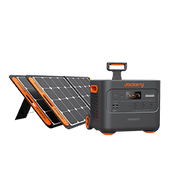
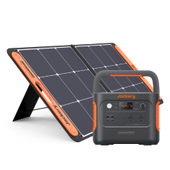
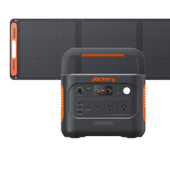
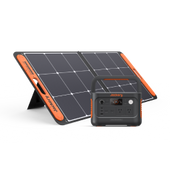
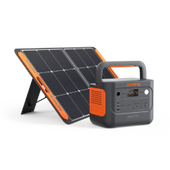

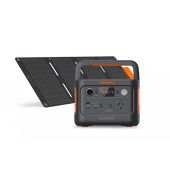
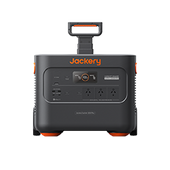
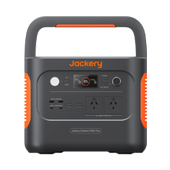
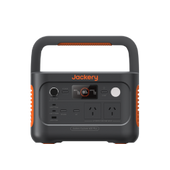
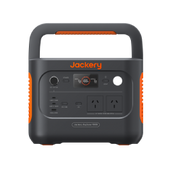
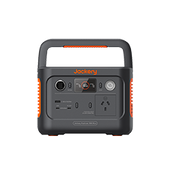
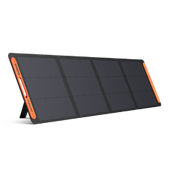
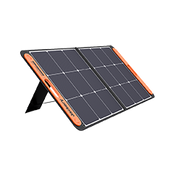


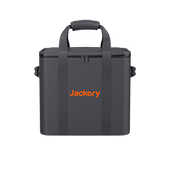
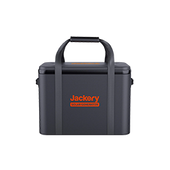
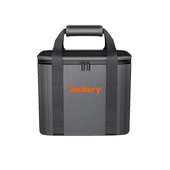

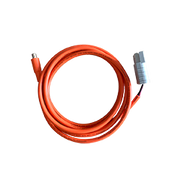

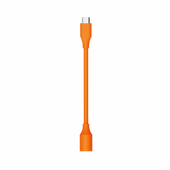
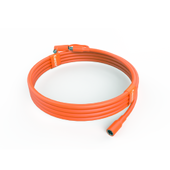





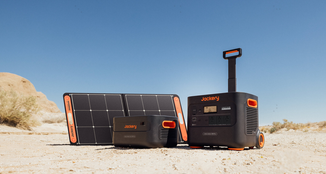

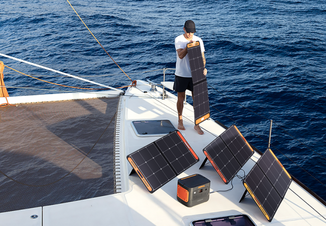

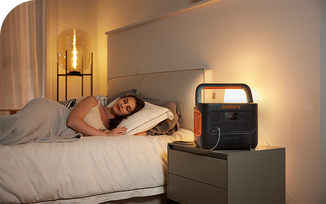
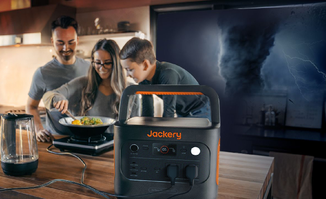

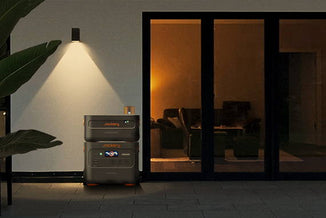
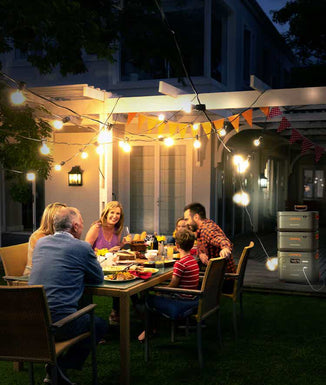


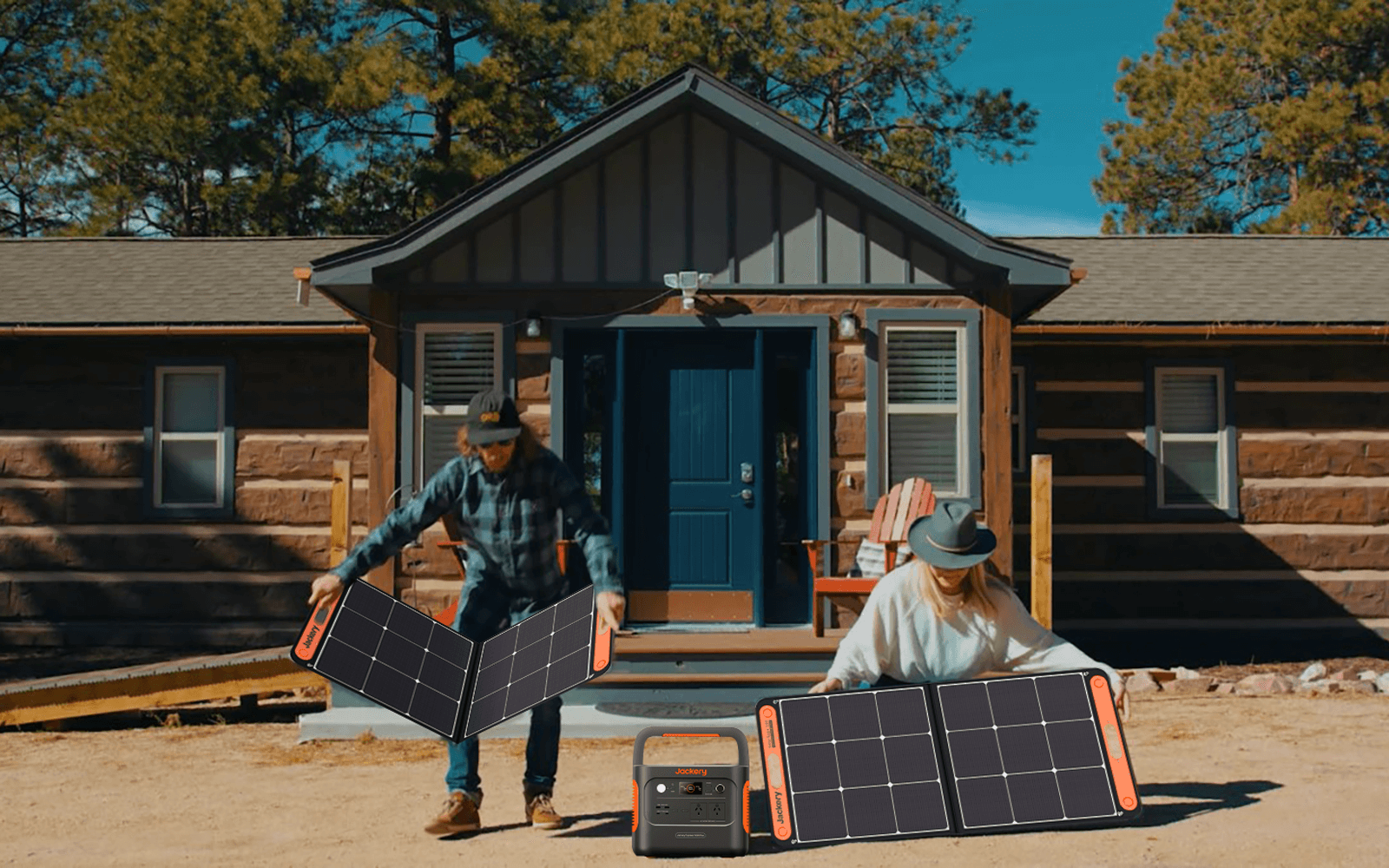
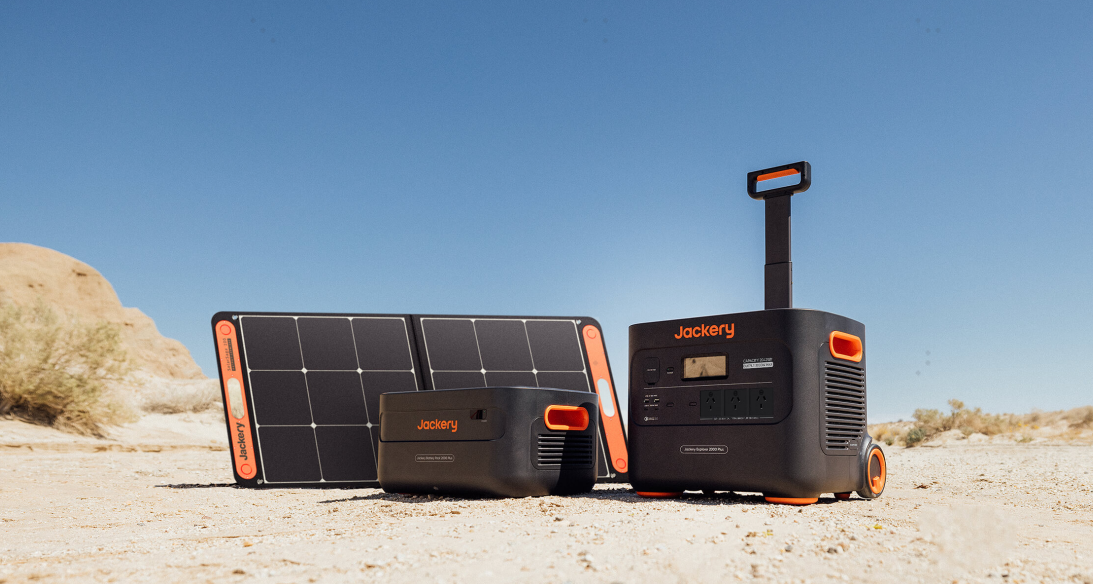

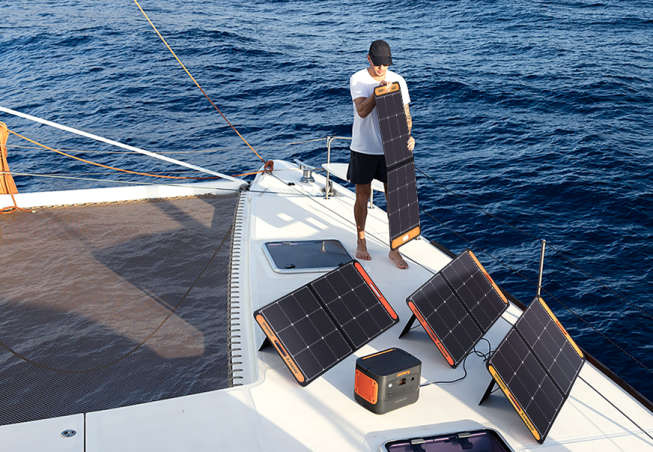

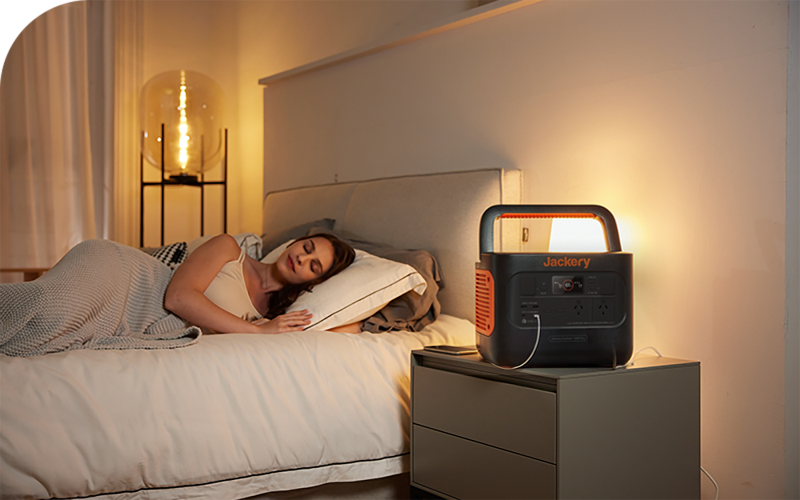
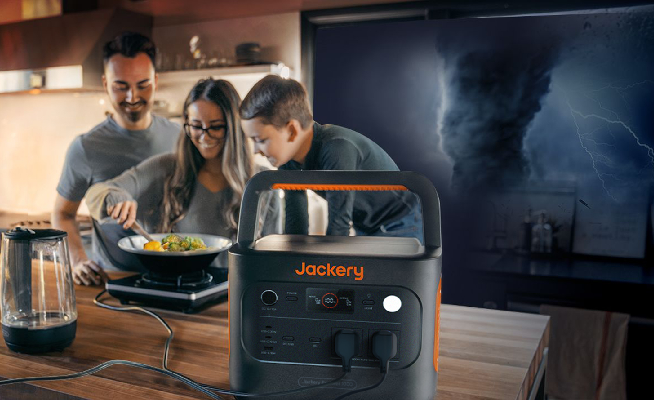

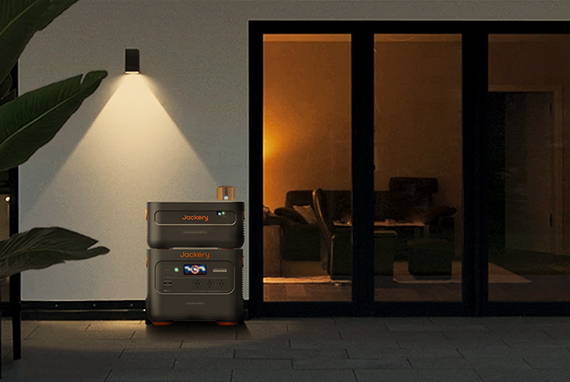
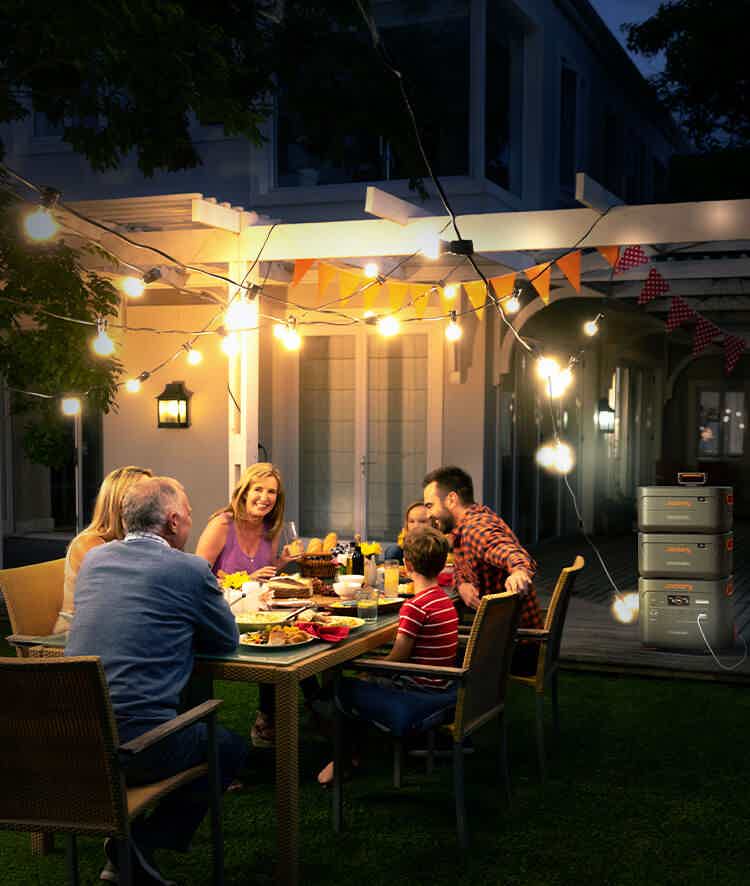
![What Is The Average Electricity Bill in Melbourne [2024 Guide]](http://au.jackery.com/cdn/shop/articles/average_electric_bill_in_melbourne_guide.png?v=1726714308)




